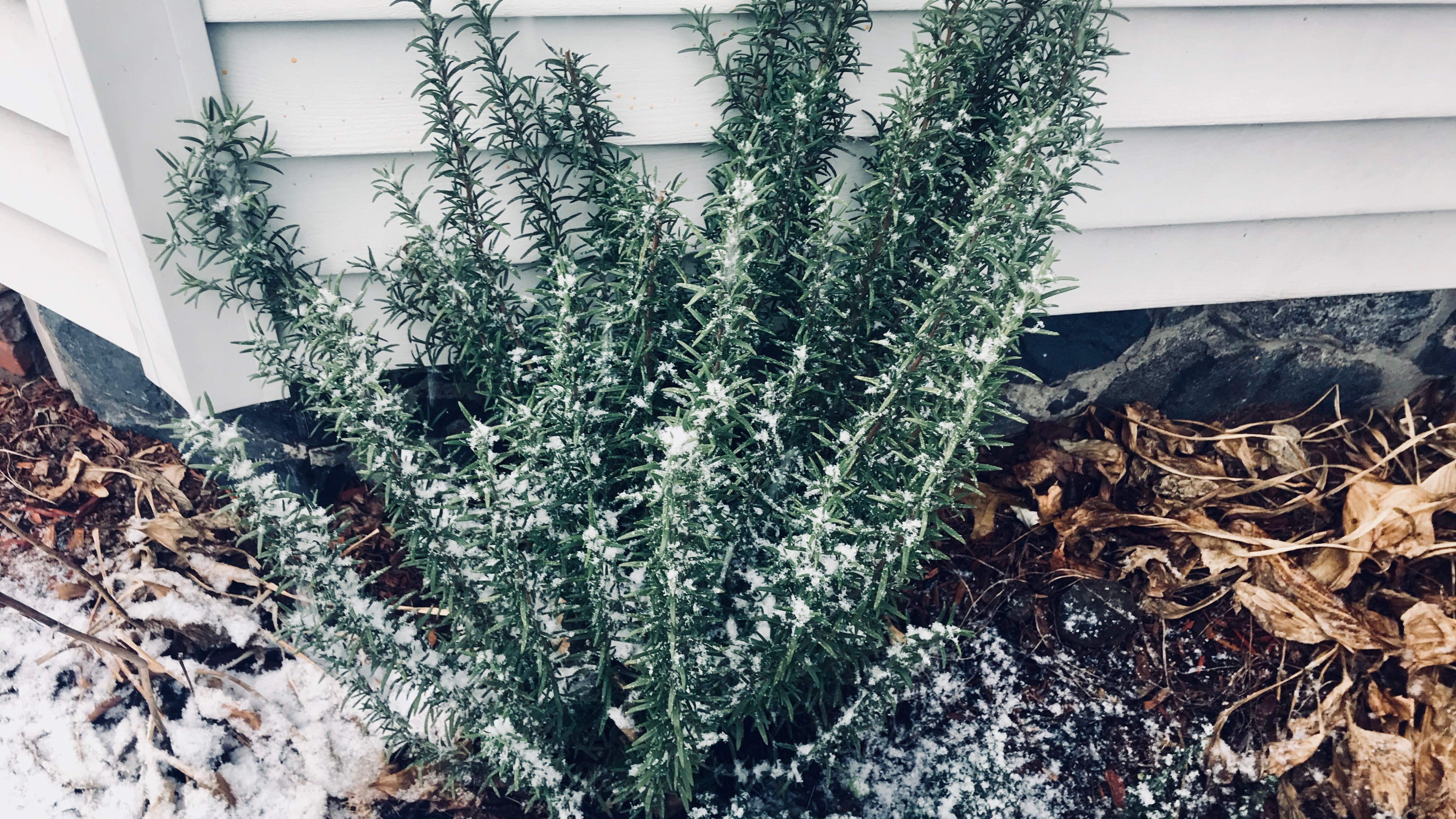
The Rosemary That Couldn’t, The Writer That Can
Trying to over-winter a mediterranean plant in New England reminds me—not just in gardening—that it’s usually better to take the time to do something the right way.
My fingertips smell of rosemary and lavender. Product of the waiting? Of high aspirations? An excuse to keep them from being idle? They’re restless—aching to work. But when I lift them to my nose for a moment and breathe, there is a calm. Fleeting.
Sometimes I catch myself counting the moments until it’s time to begin again.
Just think of the rosemary.
Wait …
A Season to Grow
Since completing the first draft of MS2 in late April, I’ve been more than a little restless. For just over two months, the routine was the same: wake up, coffee, write, read, commute, work, commute, sleep … repeat. There was a rhythm, and even when it wore me thin, I knew how to follow the beat.

Last year’s rosemary—a first attempt.
But now the manuscript is done, and I can scarcely contain my excitement. Except … I have to. I haven’t read it, or started to edit. I haven’t allowed myself thoughts of revision or which plot lines need to be shored up.
It’s in a necessary incubation period. Like the nasturtiums popping up in the front garden, it’s establishing its roots and soaking up the sun. Growing, growing, and getting ready to bloom.
But the whole thing leaves me frustrated. I’m ready to see the buds and blossoms—to bask in the full glory of this story’s summer.
But it’s only spring. Still a season to grow.
I should take a cue from the farm. I’ve been there three times already this season. First, helping to transplant seedlings—tender little things, delicate and slight. The epitome of potential. Then we planted eight-hundred feet of greens—chard and kale and collards—tiny plants the size of my thumb, that given light and water and love will feed two hundred people for months. Then just last week, onions, which, given a degree of pampering, will come out of the ground in August and last until next June.
Plant the seeds. Wait. Wait …
I don’t begrudge the chard its process—don’t walk the fields impatiently tapping my foot and asking when it’s going to offer leaves of a sufficient size. Instead, I accept that it is safe and warm beneath the clean, white row cover. It’s growing, and though it’ll require a little cultivation—weeding—it’s going to be glorious and colorful and healthy.
So why the impatience with the book?
Writing is not horticulture—er … agriculture. I’m so invested. I have this idea that if I love this story enough (and I do) I could just dive right in and make it perfect—push it out into the world and it will be loved as much as I love it.
But that’s precisely the reason to wait. I have no objectivity, and waiting for my subjective view of the whole thing to evaporate is excruciating …
But necessary.
I have to allow my mind time to rest. And then, when it’s rested, I have to nurture the story—let it grow, bring it through the winter of internal and external constructive criticism, and then watch it bloom on the other side. Which brings me back to …
The Rosemary that Couldn’t
It’s always been my favorite herb. Fragrant. Surprising.
Fickle.
I’ve grown it in pots, delighting in the heat and light of summer, only to whither and die, sitting inside in the front window come the darker months. I’ve long had this dream of keeping one outdoors, only to be told it’ll never happen in this harsh northern climate.
We visited San Francisco two years ago to see my sister. Every yard had a rosemary bush four feet tall and equally as wide. I could walk the hills of the city with my arm outstretched—palm grazing against the soft green needles in front of each house and smell the rosemary on my skin all day. The sun could break through the fog, and the lightest breeze would carry the scent into the air, filling the nose, lifting me with it’s Mediterranean perfume.
I wanted it more than ever when we got home. And last year—
Last year I tried it. My sister-in-law in Pennsylvania forgot to bring hers in. It not only survived the winter, but thrived. I witnessed it’s soft blue flowers the next spring, and I thought—
Of course I can do it. I’ll plant one, and if I love it enough …
Shortly after I put mine in the ground—a sunny spot up against the south-facing side of the house—I learned the farm was doing the same thing. A new variety called Hill Hardy. Bred to survive our climate. It was too late for me to try Hill Hardy last year, but I thought, hell. I have pansies in my side yard that over-winter. Goddamned pansies! Native to African jungles. Surely my rosemary could live.
And I loved it. I watered it. Fertilized it. It grew—almost two feet after one season. The autumn came, and I crossed my fingers. I could love it through. My devotion would be warmth enough.

Still going strong after the first snow but—not for long.
It lasted until January before it ultimately succumbed. Early last month, we pulled it from the ground, and as the dead needles wafted up their still-fragrant scent, all I smelled was defeat.
I didn’t know I was supposed to cut it down to two inches after the first hard frost. I didn’t know it should’ve been covered in mulch. I just dove into it—thought, it’ll be what it’ll be. I thought the rosemary could.
Turns out it couldn’t.
A Second Chance. A Lesson Learned.
We stopped by the farm on Saturday and picked up some new plants—three lavender and three rosemary. This time they’re the Hill Hardy variety. Not all of the farm’s rosemary survived the winter, but some of it did. It gives me hope.
They went into the ground this morning. They’re tiny. Slight. Two inches tall—a far cry from the behemoth I ended up with at the end of last season. But they’ll grow. I have to give them time, and tend to them in the appropriate way. In the late fall, I’ll have to cut away all that growth, cover them with mulch and let them … incubate.

This year’s attempt. Tiny, but full of potential!!!
It’s the only way I’ll get to see those beautiful blue flowers next spring. It’ll take time—a whole year to see if they make it through. But if they do, won’t it be worth it? Won’t I have a happier, healthier plant—one that’ll grow taller and wider, and be far more satisfying? Mine may never rival the ones I saw in San Francisco, but what an unusual delight it would be to see a rosemary coming back, year after year in Massachusetts.
A lesson learned. Don’t rush it. Give it the time it takes. Care for it in the way it requires, and don’t be afraid to cut back to ensure future growth.
So when it comes to MS2, every time I feel ready to dive in and rush ahead, I’m going to think of my rosemary—treat it carefully and give it what it needs when the time is right. Realistically, I expect to start work on the book again at the beginning of June. The wait will continue to be hard …
But I can’t wait to see the story bloom.
Share your thoughts! Do you struggle to give a project the time it takes? Do you have the patience to wait for a better outcome, or are you the instant-gratification type? What herbs are growing in your garden? Let me know in the comments below!
Thanks as always for reading,
Gregory

